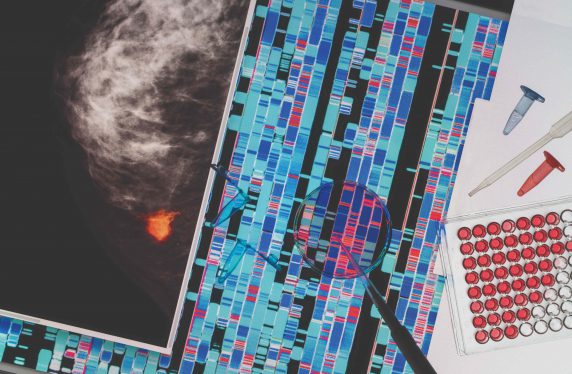Urgent suspected cancer referrals by GPs have declined by 72% in Scotland during the conoronavirus (Covid-19) pandemic, with warnings of a similar pattern in other parts of the UK.
Scotland’s interim chief medical officer, GP Dr Gregor Smith, revealed the drop in referrals earlier this week, noting GPs had told him there were far fewer people presenting with symptoms.
Meanwhile, according to Cancer Research UK, the number of urgent cancer referrals in England has reduced by 75%, based on information it has received from different regions across the country.
The charity said it believed Northern Ireland had also experienced a reduction of over 60% in red flag referrals for suspected cancer, however it had not received information about Wales, which would not in any case be able to provide comparable data with the rest of the UK due to differences in the referrals process.
Experts described the drop in referrals as ‘terrifying’ and urged GPs to be ‘even more vigilant’ in spotting symptoms.
Dr Smith called on anyone with new or persistent symptoms to ‘seek advice in the way you would have done before Covid-19’.
Speaking during the Scottish Government’s press briefing on 20 April, Dr Smith said: ‘There is strong evidence that a reduction in people coming forward to seek help has led to lower numbers of urgent referrals for suspected cancer.
‘This is seen not just in Scotland, but appears to be a pattern in other parts of the UK too.’
He added: ‘GPs are telling me that they’re seeing much fewer people coming forward with these types of symptoms and signs, and the volume of referrals that are being received backs this up. In fact, there’s been a 72% reduction in urgent suspected cancer referrals compared to the weekly average.’
Sara Hiom, director of cancer intelligence, early diagnosis and clinical engagement at Cancer Research UK, said: ‘The fact that fewer people are going to their GP with symptoms is impacting the whole diagnostic pathway.
‘There’s been a significant drop in the number of “urgent referrals” for cancer, often reported as “two-week wait” figures. Overall, the number of urgent referrals has dropped to around 25% of usual levels in England.’
Leading oncologist Professor Karol Sikora told Pulse: ‘During a usual April, around 30,000 people in the UK would be diagnosed with cancer. I think we will be lucky to make it to 5,000 this month. That is a terrifying statistic.
‘GPs should be even more vigilant than normal in spotting the symptoms and signs of cancer. Early diagnosis is so crucial. I’ve seen so many cancer patients suffer unnecessarily because the cancer has been missed at a preliminary stage.’
He added: ‘As the country moves past the coronavirus peak, we rapidly need to get hospitals functioning as normal for the sake of our patients.’
A month ago, NHS England warned that urgent cancer referrals from GPs may need to be downgraded or avoided when hospital ‘capacity is particularly constrained’ during the time of Covid-19.
It comes as the devolved nations administrations have paused many screening programmes and Pulse recently revealed NHS England is reviewing whether to suspend national screening programmes during the coronavirus (Covid-19) pandemic.
However GPs in several areas of England have reported they are already being forced to delay routine cervical smears because collection services are unavailable.
Meanwhile, a study unrelated to coronavirus has found that rising numbers of urgent two-week wait cancer referrals by GPs is reducing mortality rates in England.
Public Health England and King’s College London revealed the findings this week, concluding that patients from the highest referring GP practices had a lower mortality rate, with cancers diagnosed more quickly.

















